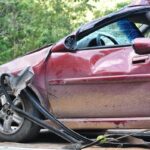When it comes to road safety, brake checking is a controversial and often misunderstood practice. As drivers in California navigate the congested freeways and streets, the legality of this action becomes a critical question. In this article, we will explore brake checking’s legality in the state of California and the potential consequences for those who engage in it.
Brake checking occurs when a driver deliberately applies their brakes abruptly, forcing the driver behind them to react quickly and potentially causing a collision. This practice is not only dangerous, but it can also lead to misunderstandings about who is at fault in case of an accident. The question of whether brake checking is illegal in California brings up multiple aspects of traffic laws, including “following too closely” and “reckless driving”.
Legality of Brake Checking in California
California Vehicle Code
In California, brake checking is not specifically mentioned under the California Vehicle Code (CVC). However, it can be considered illegal based on a few sections that focus on vehicle operations and safety. The primary CVC sections that can cover brake checking are:
- CVC 22107: This section states that a driver should not suddenly decrease the speed of a vehicle on a highway without giving an appropriate signal to the driver of the vehicle immediately to the rear.
- CVC 21703: According to this law, a driver should not follow another vehicle more closely than is reasonable and prudent, having regard for the speed of the vehicles, the traffic, and the condition of the highway.
Consequences of Illegal Braking
Brake checking can have significant consequences for both the person performing the action and the victim. California law enforcement takes unsafe driving seriously, and being involved in brake checking can lead to the following:
- Traffic Violation: The individual performing the brake check might receive a traffic ticket or fine. An accumulation of these traffic violations can lead to license suspension or revocation.
- Criminal Liability: If brake checking results in an accident that causes injury or death, it can be considered reckless driving under CVC 23103, leading to misdemeanor or felony charges.
- Civil Liability: Victims of brake checking accidents can seek compensation for damages, injuries, or losses through personal injury lawsuits. They can engage lawyers for injury compensation to build their case against the person responsible for the brake check.
Dealing with Brake Checking Incidents
Steps to Take Post-Incident
If you become a victim of a brake checking incident, it is essential to act promptly and responsibly to ensure your safety and protect your rights. Here’s a list of steps you should take immediately after the incident:
- Assess your physical condition: Check for any injuries and call 911 if medical assistance is needed.
- Move to a safe location: If possible, move your vehicle out of traffic to avoid additional accidents.
- Call the police: Report the incident to the authorities and wait for them to arrive.
- Exchange information: Collect important details from the other party, including their name, contact information, and insurance policy number.
- Document the scene: Take photographs or videos of the accident scene and any damage caused to your vehicle.
- Gather witness statements: Speak with any witnesses and collect their contact information for future reference.
- Contact your insurance company: Report the incident to your insurer and follow their advice on the next steps.
It’s important to remember that the sooner you report the brake checking incident, the better. This will help you build a strong case for your claim and increase your chances of receiving compensation for any injuries or damages.
Seeking Legal Assistance
If you have been injured or suffered substantial damage to your property from a brake checking incident, you may want to consider seeking legal assistance. One option is to consult a lawyer who specializes in injury compensation. These professionals are knowledgeable in the area of personal injury law and can guide you through the process of filing a claim.
Before choosing a lawyer, consider the following tips:
- Look for lawyers with experience in handling brake checking cases
- Ask for client testimonials or recommendations
- Determine their fee structure and payment options
By seeking legal assistance, you can ensure that all necessary steps are taken to maximize your chances of receiving just compensation for any injuries or damages sustained from a brake checking incident. Lawyers can help you navigate the complexities of the legal system, negotiate with insurance companies, and ultimately, work toward achieving the best outcome for your specific case.














